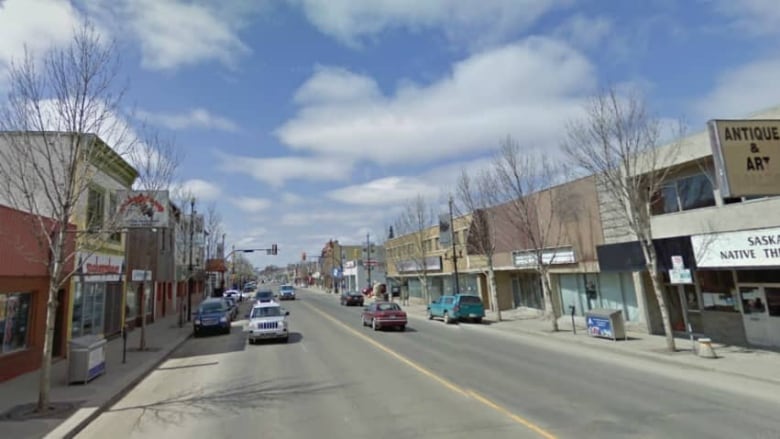Gentrification expert sees challenges, opportunity in Saskatoon's Riversdale neighbourhood
Artist and 2014 MacArthur fellow impressed with Station 20 West, still thinks more work needs to be done

Rick Lowe says he learned a lot from his recent trip to Saskatoon.
Earlier this week, the artist and former MacArthur fellow gave a lecture on gentrification at the Roxy Theatre. Lowe is best known for Project Row Houses, an art/social enterprise project in Houston, Texas that bought and renovated a number of run-down homes and turned them into art exhibition spaces and housing for artists
"The one thing that I noticed is that there's not a lot of despair here," he said. "People are really working hard, and there are lots of challenges, but I met a number of people with different organizations, people that have been showing me around, even the young folks I've met with, everybody seemed to really feel that there are possibilities."
One of the things that impressed Lowe the most about Saskatoon was Station 20 West, a centre that combines health, housing and food projects together under one roof.

However, he did see some room for improvement. Lowe said there were examples of a top-down relationship between organizations and the people they serve.
"This is a challenge not just here, but all the places I've visited," he said. "There's not a lot of trust for people that are on the ground, the grassroots folks. It's hard for people in positions of power to be in situations where someone else has to have the power."
Ultimately, Lowe said people and businesses who move into a low-income neighbourhood have a responsibility to help out.
"If you're in a neighbourhood where schools are great, most people's incomes are really good, then you're relieved of some of your social and communal responsibilities," he said. "When you move into an area where there's not as much privilege, you're inviting yourself into a situation where you need to take on a little bit more responsibilty."